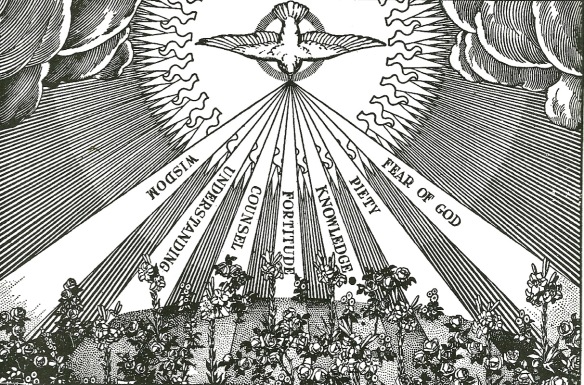
I recently saw this different take on the Nativity of Jesus shared in a Facebook group I follow and have been thinking about the image for a few days. I keep going back to it looking at it again and again and thinking about how realistic the image looks in comparison to the traditional image that I’ve seen for so many years – the image of Mary on one side, Joseph on the other side, and the newborn baby Jesus lying in the manger between them.
The Bible really doesn’t tell us much about the scene that has become so common in Christian homes and churches around this time of year, but in the second chapter of Luke’s Gospel it does make special mention of Jesus being “laid in a manger” by Mary after she gives birth to Him. It made me think back to February when my daughter came home during a “polar vortex” last winter and remember how she spent her first night lying on my chest in bed. Despite living in a heated twenty-first century house, it seemed that no matter how many layers we put on her in the bassinet she could not stay warm. I can’t help but think that there is very little chance that this line in the Gospel has a more symbolic and figurative tone than literal.
A few years ago I would not have seen much in terms of symbolism in Jesus being laid in a manger because as a city boy growing up at this time in history the only time I would see or hear of a manger would be at Christmastime when I hear the story of Jesus’ Nativity. But this year while studying the Bible and Apologetics I have learned a lot. Three major things that I have grown to better understand this year are the symbolism of the manger, of Jesus being born in Bethlehem, and a much deeper look into the Bread of Life discourse in John 6 and how they all tie together.
In John 6: 22-71 we hear the very famous (and heavily disputed between Catholics and Protestants) Bread of Life discourse. We had just heard about Jesus feeding the five thousand and then walking on water. Jesus tellsthe crowd that he had just fed that He is the bread of life. An entire blog could be written on just this (and I’m sure that several have, and one day I may add another), but let’s suffice it to say that He is speaking literally here. This can be seen in the fact that he says it not once, not twice, but nine times and each time he continues to raise the bar saying things like “Truly, truly, I say to you, unless you eat the flesh of the Son of man and drink his blood, you have no life in you; he who eats my flesh and drinks my blood has eternal life, and I will raise him up at the last day.” We even see in verse 66 that “many of his disciples drew back and no longer went about with him.” I’m sure if Jesus were speaking about being the figurative bread, he would have made himself clear before losing so many followers and even asking the twelve if they would leave also.
As mentioned earlier we see a great correlation between this story and the Nativity of Jesus. Both Matthew and Luke note the foreshadowing fact that he was born in Bethlehem – which literally translates in Hebrew and Aramaic to “House of Bread” – as well as the fact that he was laid in a manger – which is a feeding trough. The Bread of Life, born in the House of Bread and laid in a feeding trough. It’s no wonder the early Christians and Church Fathers were so deeply Eucharistic in their writings and teachings.








